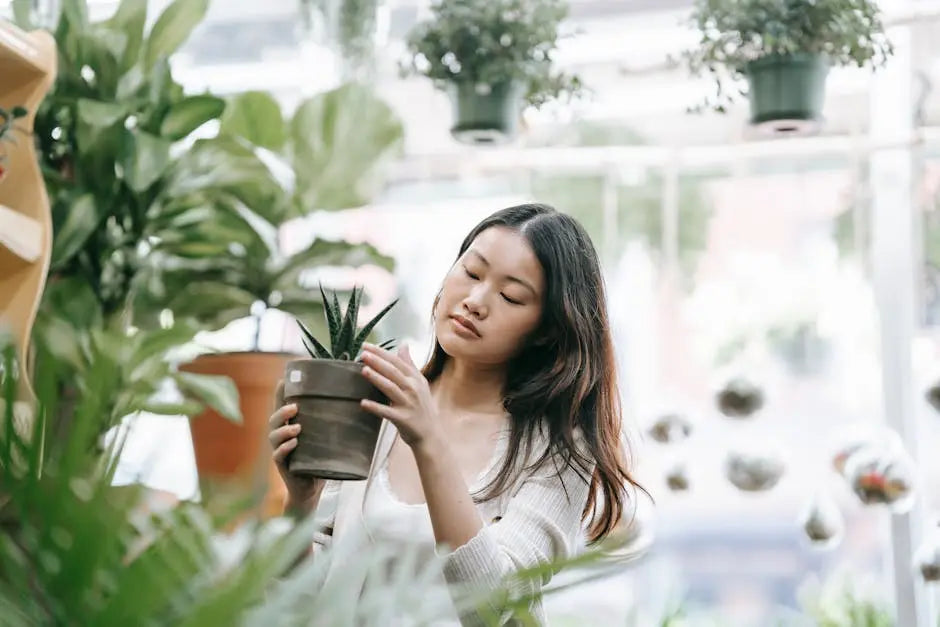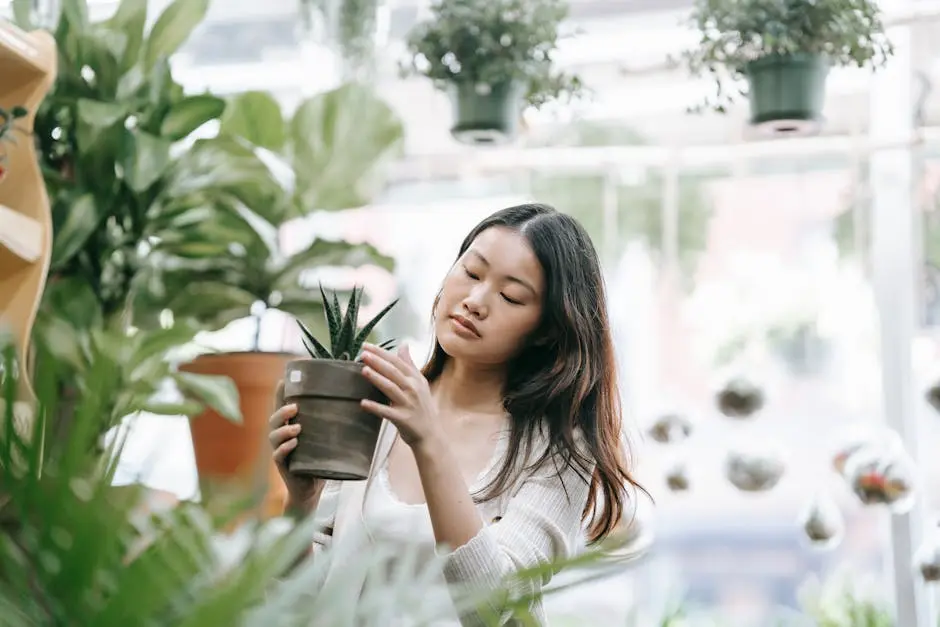
18 Botanical Store Innovations That Are Changing the Wellness Industry
Share
In recent years, botanical stores have been at the forefront of the wellness revolution, introducing innovations that have transformed how we approach health and self-care. From eco-friendly packaging to personalized herbal remedies, these stores are leading a change that’s as green as it is groundbreaking. Let’s delve into some of the most exciting innovations reshaping the wellness industry today.
1. Eco-Friendly Initiatives in Packaging
Botanical stores are pioneering the use of biodegradable and recyclable materials, ensuring that our wellness journey leaves a minimal environmental footprint. This shift not only reflects a commitment to the environment but also caters to the increasingly eco-conscious consumer who values sustainability in all aspects of life. By incorporating materials like bamboo, compostable films, and glass, botanical stores are setting a precedent for a greener future in retail. Additionally, innovative designs, such as minimalist packaging that reduces waste while still protecting the products, highlight a creative approach to conservation.
2. Personalized Herbal Blends
Customization is key. Stores are offering tailored herbal mixes that cater to individual health needs, providing more effective and personalized wellness solutions. By taking into account a customer’s unique lifestyle, dietary needs, and health goals, these blends ensure more precise and impactful results. This bespoke approach not only enhances the consumer’s wellness journey but also strengthens their trust and loyalty towards the store. The ability to walk into a store and receive a blend curated by herbalists speaks to a future where wellness is deeply personal and accessible.
Botanical stores often employ trained herbalists to assist customers in creating these blends, facilitating a consultative experience that resembles personalized care. Whether it’s a tea tailored for stress relief or a supplement for increased energy, the personalized touch differentiates these stores from more generic health shops. This method also allows stores to educate customers on the benefits of various herbs and how they synergize to support specific health objectives.
3. In-Store Wellness Workshops
Education meets engagement as botanical stores host workshops on herbal uses, promoting community knowledge and involvement. These workshops vary from beginner lessons on herbal benefits to advanced courses on DIY herbal remedies, appealing to all levels of herbal enthusiasts. By engaging customers in hands-on activities and interactive discussions, these workshops help demystify the world of herbs, making it more approachable and enjoyable.
Many stores collaborate with experts and guest speakers to provide well-rounded and credible information, ensuring participants receive the most up-to-date and scientifically-backed insights. The educational aspect not only empowers consumers but also positions the store as a hub of knowledge, fostering a community centered around health and wellness.
4. Integration of Technology in Wellness
From sophisticated health apps to AI recommendations, technology is seamlessly blending with botanical expertise, offering consumers smart wellness choices. Stores now feature apps that monitor individual health metrics, suggesting the most effective herbal remedies and lifestyle adjustments. Wearable tech integrates with store offerings, providing real-time feedback and encouraging healthier habits.
Beyond apps, digital touchpoints within the store showcase interactive displays that educate and engage customers. Shoppers can scan QR codes to learn more about a plant’s history, uses, and benefits directly from their phone. By intertwining digital resources with physical products, these stores enhance the shopping experience, blending the digital and botanical worlds seamlessly.
5. Focus on Sustainable Sourcing
Ensuring the ethical and sustainable sourcing of herbs helps maintain biodiversity and supports fair trade practices. Botanical stores are increasingly transparent about their supply chains, offering consumers assurance that their purchases are environmentally and socially responsible. They prioritize partnerships with suppliers who adhere to fair labor practices and environmental stewardship, guaranteeing sustainability from the ground up.
By prioritizing locally sourced and organic ingredients, botanical stores not only reduce their environmental impact but also support regional economies. This focus on sustainability resonates with consumers who are aware of global issues and wish to contribute positively through their purchasing decisions. Stores often share stories behind the sourcing of their products, adding sentimental value and meaning to every purchase.
6. Herbal Skincare Innovations
Natural ingredients are making waves in skincare, with botanical stores offering plant-based products that nourish the skin without harmful chemicals. As consumers become more conscious of what they put on their bodies, the demand for clean, organic skincare has skyrocketed. Botanical stores are responding with serums, creams, and masks crafted from potent plant extracts known for their anti-inflammatory and antioxidant properties.
These products not only promise to enhance beauty but also boost overall skin health by utilizing the power of botanicals like aloe vera, chamomile, and lavender. The appeal of these products is further amplified by the commitment to cruelty-free and sustainable production methods. It’s a double win for consumers looking for beautiful, healthy skin and brands that align with their eco-friendly values.
7. Holistic Wellness Kits
These all-in-one kits provide a comprehensive approach to wellness, combining herbs, teas, and oils tailored to specific lifestyle needs. Perfect for consumers new to the world of botanicals or those looking to expand their wellness practice, these kits offer convenience and effectiveness in one package. They often include instructional guides and recipes, enabling users to maximize the benefits of each component.
Themed kits, like those targeted for stress relief, sleep enhancement, or immune support, cater to broad consumer needs while providing a curated experience. This approach ensures wellness practices are easy to integrate into daily routines, lowering the barrier to entry and increasing the likelihood of sustained use.
8. Collaboration with Local Farmers
Supporting local agriculture enhances product quality and strengthens community ties, promoting a cycle of growth and sustainability. Botanical stores that partner with local farmers ensure fresher ingredients and often use this collaboration to educate consumers on where their products originate. This transparency builds trust and appreciation among customers, creating a community-centric atmosphere.
Local collaborations also mean that stores can offer unique regional products that vary with the seasons, providing an ever-evolving array of goods. By highlighting these local partnerships, stores promote and sustain agricultural diversity, contributing positively to the local economy while reducing the carbon footprint associated with long-haul transport.
9. Aromatherapy Experiences
Immersive aromatic environments in botanical stores enhance the shopping experience while providing a sensory boost to wellness. As soon as customers walk through the door, they’re greeted by a carefully curated scent profile meant to calm, invigorate, or focus, depending on the area. These experiences are crafted with essential oils and botanical fragrances that transform the store into a therapeutic space.
Scent stations featuring sniff jars or oils allow customers to engage their senses more deeply, helping them discover which scents resonate most with them. This hands-on engagement can inspire spontaneous purchases and enhance the overall shopping experience by forming lasting sensory memories.
10. Zero-Waste Refill Stations
Encouraging the reuse of containers, these stations help reduce packaging waste, aligning wellness with eco-conscious living. Customers are encouraged to bring their own containers or use store-provided ones to refill oils, teas, and other bulk ingredients. This practice not only reduces the overall demand for new containers but also provides cost savings to consumers.
Refill stations emphasize the importance of recycling and conscious consumption, fostering an eco-friendly mindset among customers. They present a simple, effective way for stores to support broader environmental goals, contributing to a circular economy model that significantly lowers waste.
11. Incorporating Indigenous Knowledge
Integrating traditional wisdom into modern practice, stores honor indigenous contributions to the botanical field, offering richer product narratives. By embracing the traditional uses and stories of herbs, botanical stores can offer products imbued with cultural heritage and wisdom. This not only enriches the product offering but supports the preservation and recognition of indigenous knowledge and practices.
Incorporation involves creating partnerships with indigenous communities to ensure respectful and accurate representation. This approach educates consumers about the origins and cultural significance of botanicals, promoting a deeper understanding and appreciation of nature’s bounty that is respectful and inclusive.
12. Seasonal Herbal Highlights
Botanical stores are spotlighting seasonal herbs, educating consumers about their benefits and seasonal relevance. These highlighted offerings ensure freshness and allow stores to tailor their product selections to the natural cycles of the year, offering herbs that are particularly effective during specific seasons.
Through workshops and promotional materials, stores emphasize how seasonal herbal selections can enhance health, aligning personal wellness practices with seasonal shifts. This awareness encourages a harmonized approach to wellness that aligns with nature’s rhythms, enhancing effectiveness and consumer mindfulness.
